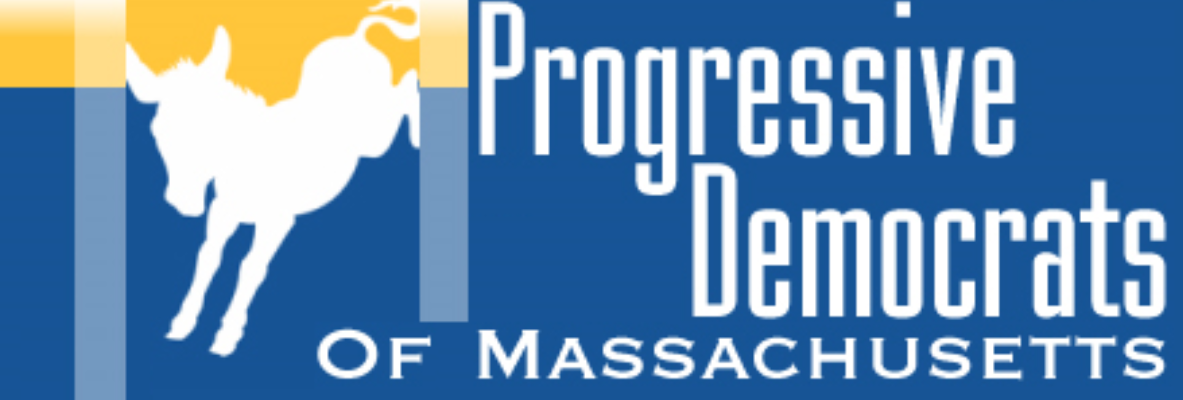February 18, 2025
Acting Commissioner Russell Johnston
Massachusetts Department of Elementary & Secondary Education
169 Santilli Highway
Everett, MA 02149
Dear Acting Commissioner Johnston:
I am writing to you on behalf of Progressive Democrats of Massachusetts (PDM), a statewide
network of grassroots activists, with regard to your imminent proposal of revised regulations
relating to admissions to the state’s system of career/technical secondary school programs.
Specifically, we write to urge you to require these programs to allocate their seats on the basis
of an unrestricted lottery, open to all interested students who successfully complete eighth
grade without any limitations that would not disqualify those students from attending an
academic high school.
PDM’s education working group has been focused on issues of access to the state’s system of
vocational education programs for nearly a decade, and supports both increases in the overall
capacity of the vocational education system and in elimination of discriminatory selection
systems for oversubscribed programs. PDM is an active member both of the Alliance for
Vocational/Technical Education (AVTE), which advocates for increased capacity in the system,
and of the Vocational Education Justice Coalition (VJEC), which advocates for non-
discriminatory access.
With regard to the forthcoming proposed regulations on vocational admissions, we are fully in
support of the letter recently sent to you by VEJC, and we are writing to underscore a few of
PDM’s reasons for believing that an unrestricted lottery is the only fair and educationally sound
path forward on vocational admissions.
Our understanding is that the Commonwealth’s system of vocational secondary schools and
programs is intended to serve at least three vital purposes:
- To provide an alternative, hands-on pedagogy that better suits the learning styles of
many students who are less successful with the more traditional pedagogies that are
standard in the college-prep focused comprehensive secondary schools. - To offer pathways to valued careers and economic success to students for whom college
may not be a productive or available option. - To sustain and grow the Commonwealth’s economy by supplying workers who are
prepared to fill the many “middle-skills” occupations (from health care to building
trades to hi-tech manufacturing) that face existing or impending shortfalls of workers.
The prevalent present admissions systems, which give first priority to students who have
thrived in middle school and show the greatest probability of success in the college-oriented
pedagogy of our comprehensive schools, is starkly inconsistent with any of these purposes for our vocational programs. Not only does it discriminatorily (and illegally) disfavor students from
groups that are entitled to protection under our civil rights laws, but it also disfavors the very
students (from protected classes and otherwise) who would derive the greatest benefit from
participation in these programs and who would be most likely to take full advantage of the
career opportunities for which the vocational programs are designed. At present, our
vocational programs are providing starkly insufficient pipelines into many trades and careers,
where that undersupply is threatening the health of our state economy, and that insufficiency is
in significant part attributable to the present irrational admissions systems.
In particular, we urge you not to authorize vocational programs to continue the use of middle-
school attendance and disciplinary records to screen out students who are otherwise qualified
to enter the ninth grade. As is well documented, far too often poor attendance and disciplinary
records reflect a poor match between students’ learning styles and the pedagogy that
predominates in many middle schools. In addition, it is beyond question that these measures
will disproportionately exclude students from legally protected classes, often because of
disparate treatment of students in these categories. In the absence of compelling evidence
that use of these factors is necessary for successful participation in vocational programs,
neither common sense nor civil rights law can justify their continued use.
We urge you to move forward with a policy that recognizes that our vocational schools are
public schools, and that gives equal access to all of the students who wish to attend, while
eliminating the unfair obstacles placed in the way of many of the students who can derive the
greatest benefits from vocational education.
Many thanks for your attention to this letter, and for the time and effort you are devoting to
this urgent issue.
Yours truly,
Peter Enrich, Chair
Progressive Democrats of Mass.
Cc: Board of Elementary and Secondary Education
Vocational Education Justice Coalition
Kate Cook, Governor’s Chief of Staff
